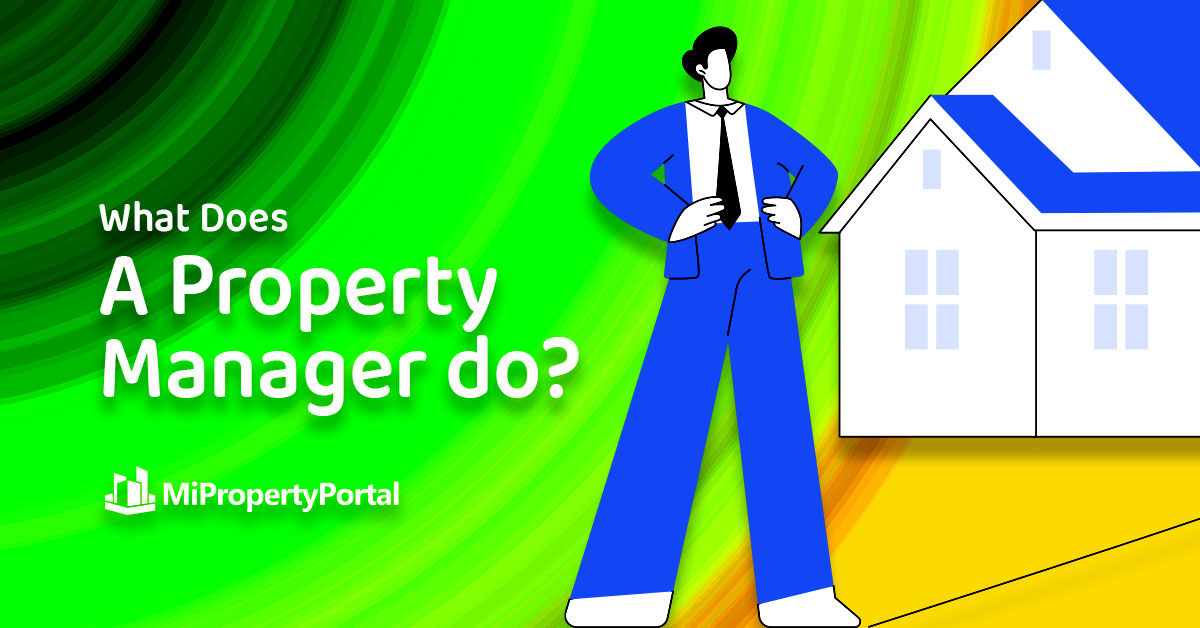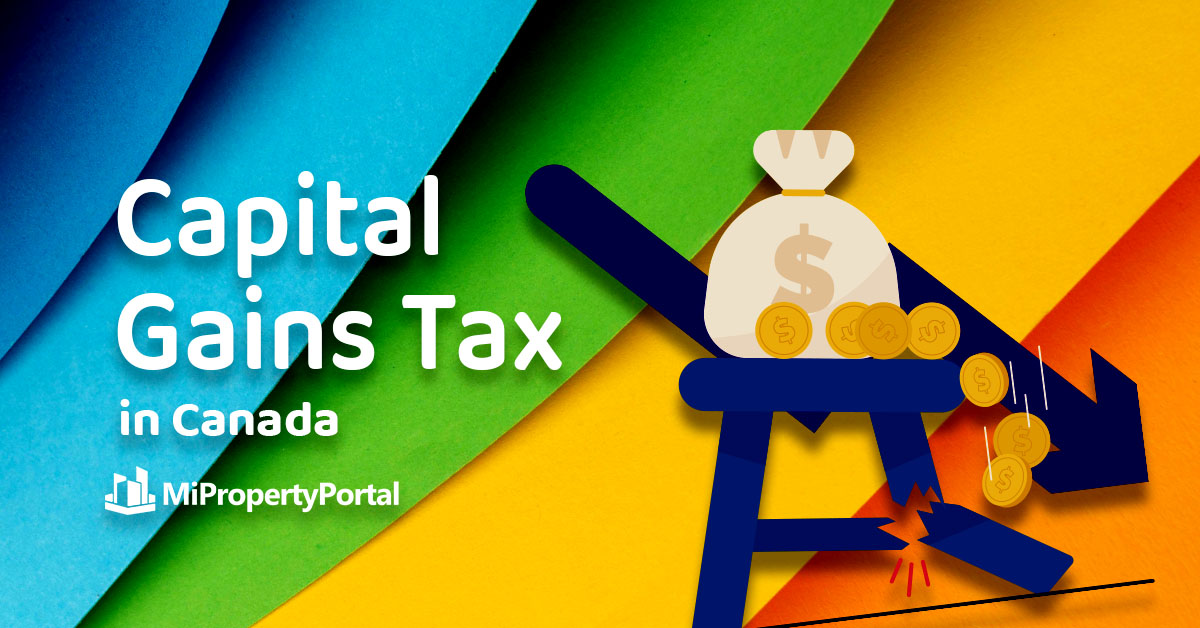In Guide
What Does a Property Manager Do

Mi Property Portal
June 14, 2024 - 8 min read
Imagine your apartment building as a beehive of tenants buzzing in and out, repairs buzzing to get fixed, and rent payments steadily flowing in. But who keeps the whole hive humming? That’s the superhero of the real estate world, the property manager!
These property managers have many obligations and responsibilities. They’re tenant wranglers, ensuring everyone lives peacefully. They’re maintenance maestros, keeping the building in tip-top shape. They’re even investor confidantes, making sure the property thrives.
This guide will unveil the exciting world of property management. We’ll explore the juggling act they perform daily – from fixing leaky faucets to mediating roommate disputes.
Finally, you’ll understand why professional property management is the secret sauce to a stress-free rental experience for tenants and a profitable venture for investors.
Key Responsibilities for Property Managers
Imagine a property manager’s day – their inbox explodes with emails! Tenants might message about repairs, owners need updates, and contractors need scheduling. But property managers are the email ninjas handling it all. Here’s a breakdown of their key tasks:
- Email: A constant flow of emails keeps property managers busy. They answer tenants’ questions, keep owners updated, and coordinate with contractors (scheduling, quotes). Their quick and friendly replies build trust and keep things running smoothly.
- Organize: Property managers are detail-oriented. They schedule repairs, track everything from rent payments to maintenance requests, and ensure all legal documents are in order. This keeps the property running like clockwork and protects everyone involved.
Property Maintenance and Inspections
A property manager’s essential role involves keeping properties in excellent condition through regular maintenance and inspections.
Conducting Inspections
Property managers routinely inspect properties to ensure they are well-maintained. These inspections help identify issues early, preventing minor problems from escalating into major, costly repairs.
By addressing maintenance and repair needs promptly, property managers maintain the property’s value and ensure tenant safety and satisfaction.
Handling Maintenance Requests
Property managers are responsible for processing maintenance requests efficiently. This includes handling invoices and coordinating repairs quickly to minimize tenant inconvenience.
Effective communication with contractors and service providers ensures that repairs are done correctly and on time, enhancing the property’s overall functionality and tenant satisfaction.
Tenant Relations
Property managers aren’t just about fixing leaky faucets! They are also tenant relations experts.
Here’s how they keep things positive with the people who call your rental home theirs:
- Tenant Team Players: Happy tenants mean happy property owners. Property managers create a welcoming environment by being approachable, answering questions quickly, and ensuring everyone feels comfortable living there.
- Maintenance and Repairs: They ensure the property is well-maintained and address any issues that might arise, from a broken appliance to a noisy neighbour. Their goal is to keep tenants feeling secure and content in their rental.
- Conflict Management: Sometimes disagreements happen. Property managers act as peacemakers, listening carefully to both sides and finding fair solutions to tenant concerns. They work to keep the living environment harmonious for everyone involved.
Investor Relations
Property managers understand that property owners’ investments are valuable assets, and it’s our responsibility to ensure they are well-managed and maximized to their fullest potential.
Networking and Building Connections
Property management is a people-centric business; fostering connections with investors is crucial. Property managers seek opportunities to meet with potential and existing investors through industry events, networking functions, or one-on-one meetings.
These interactions allow them to understand their unique goals, risk tolerance, and investment strategies, enabling us to tailor our services accordingly.
Finding Good Deals and Ensuring Well-Managed Investments
One key role is identifying lucrative investment opportunities for investor clients. Property managers leverage our market knowledge, industry connections, and analytical skills to uncover properties that align with their investment criteria.
By conducting thorough due diligence and presenting comprehensive analyses, we empower investors to make well-informed decisions. The goal is to maximize returns while minimizing risks, ensuring that investors’ investments are well-cared for and generating optimal returns.
Multitasking and Organization
The role of a property manager is inherently multifaceted, demanding a high level of multitasking and organizational prowess to handle both simple and complex tasks effectively.
Balancing Diverse Tasks
Property manager duties include financial oversight like budgeting, monitoring expenditures, and securing the property’s profitability. Such task diversity requires keen attention to detail and effortless multi-tasking.
Importance of Multitasking and Staying Organized
Multitasking enables property managers to efficiently address multiple responsibilities at once—from resolving tenant issues to managing financial obligations or negotiating leases. This skill ensures comprehensive management and timely task execution and, ultimately, enhances tenant satisfaction and property value.
Organizing is equally vital; it helps property managers maintain oversight across multiple properties with distinct demands. Tools such as property management software are indispensable in this regard, aiding in task management, record-keeping, and scheduling of maintenance checks, thus ensuring nothing slips through the cracks.
Challenges Faced
While property management can be incredibly rewarding, it has its fair share of challenges. From high-stress situations to the delicate balance of managing the interests of both tenants and property owners, property managers must be equipped to navigate these obstacles with poise and professionalism.
High-Stress Situations
Property manager’s role puts them at the forefront of crisis management. From emergency maintenance issues to tenant disputes and legal conflicts, the ability to remain level-headed and make sound decisions under pressure is paramount.
Balancing Interests
Mediating between tenants and property owners is a delicate dance that requires exceptional communication and conflict-resolution skills. Property managers must balance protecting the interests of the property owners while ensuring that tenants’ concerns are addressed fairly.
Property manager responsibilities include a deep understanding of landlord-tenant laws, empathy, and a commitment to finding mutually agreeable solutions.
Effective communication and transparency are key to building trust and fostering positive stakeholder relationships.
Despite these challenges, successful property managers thrive by embracing a solutions-oriented mindset. They remain adaptable, continuously enhancing their skills and leveraging their expertise to navigate even the most complex situations.
Rewards of the Job
Being a property manager isn’t just about collecting rent. It offers numerous perks that make it a fulfilling career path. Here’s why property managers love their jobs:
Seeing the Big Picture
Imagine taking a rundown property and turning it into a happy home for tenants. Property managers get a real sense of satisfaction from their work.
They create a stable environment for people to live in, all while protecting the owner’s investment. It’s a win-win situation; seeing it all come together brings a unique sense of accomplishment.
Always Learning, Always Growing
The world of property management is constantly changing. There’s always something new to learn from new laws to the latest tech tools. Property managers get to develop their communication, negotiation, and problem-solving skills.
They also gain valuable insights into the real estate market, keeping their jobs interesting and their minds sharp.
Importance of Professional Management
Professional management companies are crucial in ensuring properties are efficiently and effectively managed.
Efficiency and Effectiveness
One of the major benefits of professional management is maintaining properties to a high standard. This includes meticulous attention to property upkeep, which attracts and keeps good tenants. Also, these companies often have established networks of trusted vendors and contractors, which can lead to quicker service and lower costs.
Providing Peace of Mind
The biggest advantage for property owners is peace of mind. A good management company will handle all the daily responsibilities and deal with emergencies, freeing owners to focus on other investments or personal matters.
This is especially valuable for owners who live far from their properties or prefer not to manage the day-to-day details themselves.
While this section provides a general overview, property manager compensation can be complex. Some salaried positions include bonus structures based on performance. Additionally, hourly rates might vary depending on the specific tasks performed.
Knowing how property managers are paid can help you budget and make smart hiring choices. In the next sections, we’ll explore the specific factors affecting property management costs and offer tips for getting the most value for your money.
Conclusion
Property managers are the unsung heroes of the real estate world. They juggle finances, maintenance, and tenant relations to keep things running smoothly. While challenges like high-stress situations and balancing interests exist, the rewards of creating a harmonious living environment and witnessing a property thrive are immense.
Whether you’re considering this career path or looking for a management company, remember that we all contribute to a successful and positive rental experience.


